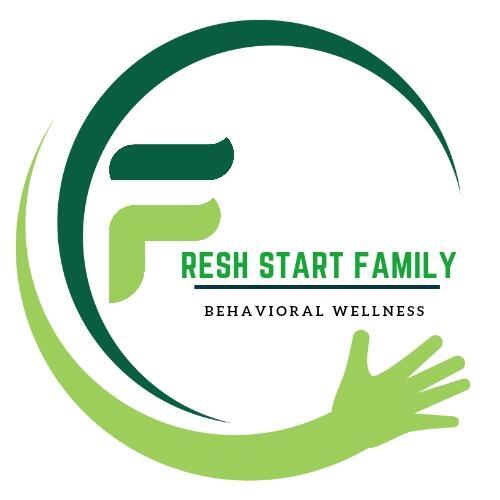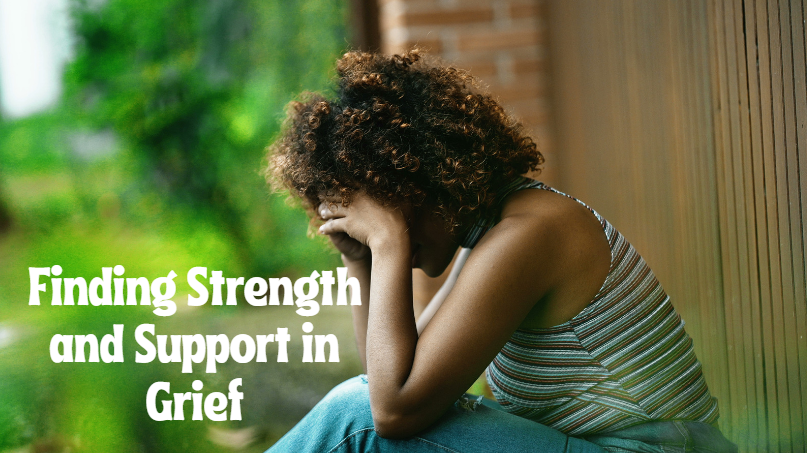Coping with grief is one of life’s most challenging emotional experiences, yet it’s something we all face. Whether the loss is of a loved one, a relationship, or even a dream, grief is a natural response that impacts us deeply. While it’s not an easy journey, it’s essential for healing and moving forward.
Grief can be overwhelming and isolating, with emotions that feel confusing and difficult to navigate. It’s crucial to recognize that everyone experiences grief differently; there is no “right” way to grieve. Some may feel anger, sadness, or numbness, while others may struggle with guilt or denial.
This article offers insights on managing grief in healthy, compassionate ways. We’ll explore coping strategies, the role of support systems, and how to find strength during this difficult time. No matter what you’re feeling, you’re not alone, and healing is possible.
What Is Grief?
Grief is a natural and universal response to loss. It is the emotional suffering one experiences when something or someone significant is taken away, manifesting in various forms ranging from sadness and loneliness to deep anguish. The grieving process is a testament to the love and connection felt for what has been lost.
Different Types of Losses
- Loved Ones: The death of a family member or close friend.
- Pets: The passing of a beloved animal companion.
- Relationships: The end of a romantic relationship or friendship.
- Jobs: Losing employment or career opportunities.
- Health: Decline in physical or mental health.
- Life Changes: Major life transitions include moving to a new location or retiring.
Grief Is Deeply Personal and Unique
Grief is a deeply personal and unique experience for each individual. No two people grieve in the same way or for the same duration. Various factors, including personality, coping mechanisms, cultural background, and the nature of the loss, influence it.
Myths and Facts About Grief

Understanding grief is essential for emotional healing, yet many misconceptions still prevail. Dispelling these myths can help individuals navigate their grief journeys more effectively and offer better support to others. Here, we address common myths about grief and provide facts to foster a more compassionate and informed perspective.
Myth: Time heals all wounds.
Fact: Time alone doesn’t heal; active processing of grief is crucial.
Myth: Grieving should only last a few months.
Fact: Grief has no set timeline; it varies widely among individuals.
Myth: It’s better to grieve alone.
Fact: Support from others can be vital for healing.
Myth: Staying busy helps to forget about the loss.
Fact: Distraction can delay the grieving process but not eliminate it.
Myth: Only deaths cause grief.
Fact: Any significant loss, such as relationships or jobs, can lead to grief.
The Grieving Process: An Individual Journey
Grieving is an intensely personal experience with no universal roadmap to healing. Each person’s journey through grief is as unique as their fingerprint, shaped by their personality, beliefs, and circumstances. Some might find solace in talking openly, while others may seek solitude. Acknowledging that there is no right or wrong way to grieve is vital.
During this journey, emotions can be unpredictable, ranging from deep sorrow to moments of unexpected joy. It’s important to be gentle with oneself and recognize that healing takes time. Connecting with others who understand can be a source of comfort and support.
How to Cope with The Grieving Process
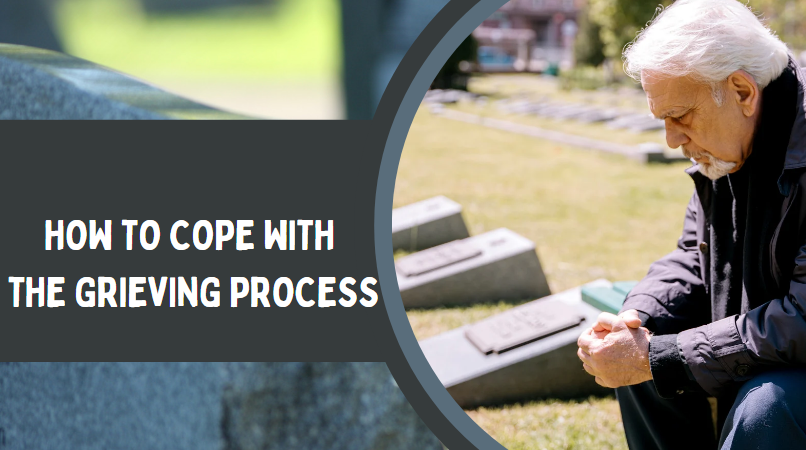
Coping with grief is one of life’s most challenging experiences. While there’s no one-size-fits-all approach, understanding and compassion can make the journey more bearable. Here are some practical steps and strategies to help navigate this difficult time, honoring your needs and emotions. Here is how to cope with the grieving process:
- Acknowledge Your Feelings: Allow yourself to feel whatever arises, whether it’s sadness, anger, or guilt.
- Seek Support: Lean on friends, family, or support groups; sharing can ease the burden.
- Self-Care: Prioritize rest, nutrition, and physical exercise to bolster your well-being.
- Professional Help: Don’t hesitate to seek counseling or therapy if needed.
- Create Rituals: Engage in activities that honor and remember your loss, fostering connection and healing.
The Five Stages of Grief
The five stages of grief—denial, anger, bargaining, depression, and acceptance—were introduced by psychologist Elisabeth Kübler-Ross. These stages are often experienced by individuals coping with loss, each offering a framework to understand the complex emotions involved. However, it’s crucial to recognize that not everyone will go through all the stages or in a specific order.
Introducing the Five Stages:
- Denial: Difficulty believing the loss has occurred.
- Anger: Feeling frustration and helplessness.
- Bargaining: Making deals or promises to reverse the loss.
- Depression: Deep sadness and withdrawal.
- Acceptance: Coming to terms with the loss and finding a way forward.
Elisabeth Kübler-Ross’s research underlined that grief is not a linear process. Individuals might move back and forth between stages or experience certain stages more intensely than others. Her findings emphasize that each person’s journey through grief is unique, and there’s no “right” way to grieve. The stages offer insight but should not be seen as a strict progression.
Grief Is Like a Roller Coaster
Grief is often compared to a roller coaster with unpredictable highs and lows. Just like a ride, the intense emotions can come in swift waves, leaving individuals feeling overwhelmed one moment and somewhat stable the next. This metaphor captures the turbulent and non-linear nature of grieving.
Over time, the intensity and duration of these emotional waves may lessen, but they can resurface during significant life events or anniversaries. It’s important to understand that experiencing intense grief during these moments is completely normal and part of the ongoing process of healing.
Symptoms of Grief: What to Expect
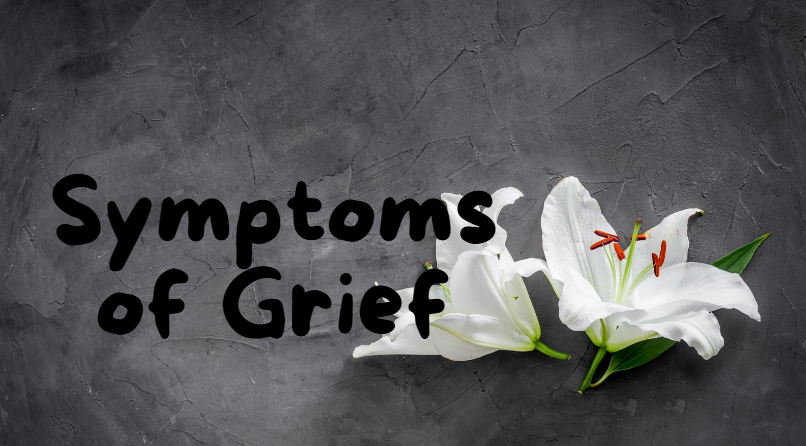
Grief manifests in various ways, affecting both emotional and physical well-being. Understanding the wide range of possible symptoms can help you navigate this challenging experience and remind you that you’re not alone.
Emotional Symptoms
Emotional symptoms of grief can be intense and varied, often interwoven with each other:
- Shock and Disbelief: Initial numbness, struggling to accept the reality of the loss.
- Profound Sadness and Feelings of Emptiness: Overwhelming sorrow and a sense of void.
- Guilt and Regret: Ruminating on “what ifs” and perceived shortcomings.
- Anxiety and Fear: Heightened insecurities and worries about the future.
- Anger and Resentment: Frustrations possibly directed at oneself, others, or the situation.
Physical Symptoms
Grief also takes a toll on your body, manifesting in various physical symptoms:
- Fatigue: Persistent tiredness and lack of energy.
- Nausea: Upset stomach and digestive issues.
- Other Physical Manifestations: Headaches, muscle aches, and chest pain.
The Impact of Grief on Mental Health
Grief deeply affects mental health, often leading to a range of emotional and psychological challenges. Recognizing these impacts can help in seeking appropriate support and coping strategies.
- Depression: Persistent sadness, loss of interest in activities.
- Anxiety: Heightened worry, panic attacks.
- Difficulty Concentrating: Struggling to focus or make decisions.
- Sleep Disturbances: Insomnia or oversleeping.
- Isolation: Withdrawal from social interactions.
- Mood Swings: Rapid changes in emotion.
- Feelings of Hopelessness: Pervasive sense of despair and helplessness.
Different Types of Grief and Loss
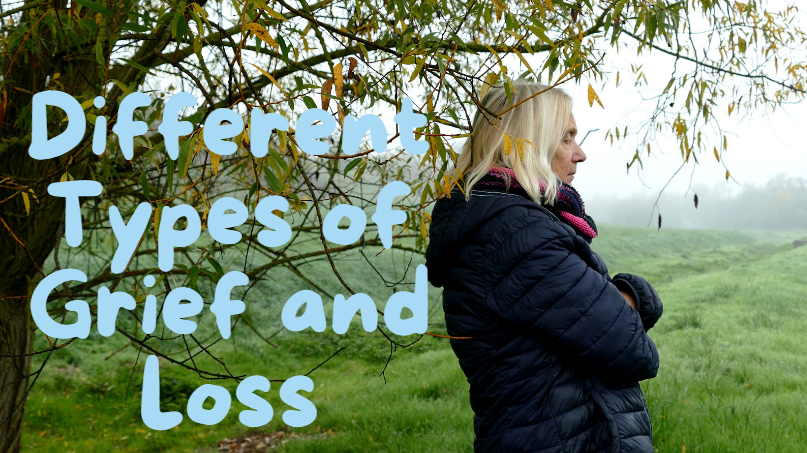
Grief and loss are universal experiences, yet each person copes with them in unique ways. Understanding the different types of grief and loss can help individuals recognize and validate their emotions, enabling them to heal in their own time and space. It’s important to remember that everyone’s journey through grief is different.
1. Anticipatory Grief
Anticipatory grief occurs before a loss happens, typically when someone is facing a terminal illness or imminent death. Individuals experience sadness, anxiety, or fear as they prepare for the inevitable.
Example: A caregiver of a loved one with cancer may feel anticipatory grief as they face the reality of their passing.
2. Normal Grief
This is the natural response to loss and follows a predictable course, with intense emotions of sadness, anger, or even guilt. Over time, these feelings often lessen, and individuals gradually adapt to life without their loved ones.
Example: After the death of a spouse, a person may feel deep sadness and a longing for companionship, which eventually eases as they adjust.
3. Complicated Grief
Complicated grief is when someone has difficulty moving forward after a loss, experiencing prolonged intense sorrow or a sense of being stuck in their grief. This type of grief may require professional support to heal.
Example: A person who cannot stop mourning a loved one years after their death, unable to participate in daily activities or move on, may be experiencing complicated grief.
4. Disenfranchised Grief
This type of grief happens when a person’s loss is not acknowledged or socially supported, often leading to feelings of isolation. It can occur when the loss is deemed less significant or misunderstood by society.
Example: A person grieving the loss of a pet may experience disenfranchised grief if others don’t understand the depth of their sorrow.
5. Cumulative Grief
Cumulative grief occurs when a person experiences multiple losses in a short period, which can overwhelm the emotional system and delay the grieving process. The accumulation of grief can make it harder for individuals to cope effectively.
Example: Someone who loses both their parent and their job within the same year may struggle to cope with the weight of these multiple, simultaneous losses.
Finding Comfort Through Grief Support

Navigating the journey of grief is challenging, but you don’t have to face it alone. Grief support provides a compassionate space to share your emotions, learn coping with grief strategies, and find solace in connecting with others who understand your experience.
1. Support Groups
Join others in similar situations to share stories and offer mutual encouragement, fostering community and understanding.
2. Counseling
Professional therapists provide personalized support to help you process complex emotions and develop healthy coping strategies.
3. Online Communities
Virtual forums and social media groups offer comfort and connection, accessible from the safety of your home.
4. Workshops and Retreats
These provide deeper healing opportunities through art therapy, mindfulness, and meditation.
5. Peer Support
One-on-one connections with trained volunteers or facilitators provide a personal touch and continuous encouragement.
Caring for Yourself During Grief

Grief takes a toll on both mind and body, making self-care essential. Prioritizing your well-being during this challenging time can foster healing and resilience, helping you navigate the journey of loss with greater strength and compassion for yourself.
1. Physical Health
Ensure regular exercise, a balanced diet, and adequate sleep to support your body and boost your mood.
2. Emotional Expression
Allow yourself to feel and express emotions through journaling, talking with a trusted friend, or engaging in creative activities.
3. Routine and Structure
Maintaining a daily routine can provide a sense of normalcy and stability amidst the chaos of grief.
4. Seek Support
Reach out to friends, family, or support groups to share your experiences and receive comfort.
5. Mindfulness and Relaxation

Practice mindfulness, meditation, or deep-breathing exercises to reduce stress and find moments of peace.
Final Thoughts
Grief is a natural and deeply personal journey; everyone experiences it in their way and time. It is important to acknowledge that while grief can feel overwhelming, healing is possible. By embracing the grieving process and cherishing the memories of those we’ve lost, we honor our connections and find meaningful ways to continue our journey forward, carrying the love and lessons with us.
As you navigate this challenging path, remember to be kind and patient with yourself. Seeking support is a sign of strength, and Start Behavioral Wellness is here to offer guidance and care. Our professionals are dedicated to providing compassionate, confidential services tailored to your needs. Let us be your confidant as you embark on a journey toward healing and renewal. Please contact us at 910-436-6495.
